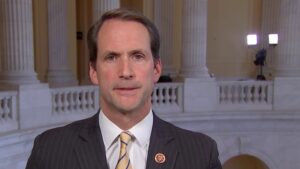This year, I was asked to give a commencement address at a school I attended from kindergarten through fifth grade. Here is an edited version of my remarks:
When I was asked to speak today, I thought that it was a problematic choice. I am not known for being inspirational. Aspirational, either. In fact, my reputation is more perspirational.
Really perspirational. I interview people for a living, and in one of my most infamous interviews with Walt Mossberg, we made Mark Zuckerberg, the C.E.O. of Facebook, so nervous about issues of privacy at his then-nascent social media site that he started sweating so much that he soaked through his shirt and nearly fainted. While this was not our fault, I felt bad at the time. Given how things have turned out with social media, I don’t anymore.
When I asked my oldest son what advice I should give to people just graduating from high school, as he did last year, he said in no uncertain terms that, whatever I said to him, do not say to you: Don’t do your homework anymore.
Because that is what I used to say to him and his brother all the time when they had a choice to do something I felt was far more interesting for them. Since I have covered the major moments in the digital age, those opportunities were myriad for them, especially to be able to talk with the Thomas Edisons and Grace Hoppers of our time.
A hike across the Golden Gate Bridge with a person who helped invent the iPhone? Don’t do your homework.
A visit to a cool new autonomous-car company run by a truly quirky young inventor I just met named Elon Musk? Don’t do your homework.
A chance to see the garage Google was founded in and hear about it from the strange group of entrepreneurs who created it? Don’t do your homework.
By the way, my son mostly did his homework, as evidenced by the fact that he got into college. But the point I was making contained a theory of mine: When life offers you unusual things, it is always a good idea to take them. Which is why I am ignoring my very smart son and telling you: More often than not, look up in life as much as you can, and if you find something riveting, don’t do your homework.
At this point, your parents are regretting having me as a speaker. But I am only stressing a characteristic that I think is at the heart of an ethos that represents the best of Silicon Valley.
The idea grew out of a speech at Stanford University that Steve Jobs, a co-founder of Apple and its C.E.O. at the time, made just after he recovered from a bout of cancer:
When I was 17, I read a quote that went something like, “If you live each day as if it was your last, someday you’ll most certainly be right.” It made an impression on me, and since then, for the past 33 years, I have looked in the mirror every morning and asked myself, “If today were the last day of my life, would I want to do what I am about to do today?” And whenever the answer has been “no” for too many days in a row, I know I need to change something.
Change is exactly what Mr. Jobs did over the course of his legendary life, always being willing to shift when he saw a new avenue. As Mary Poppins said, “I shall stay until the wind changes.” I would advise you, as you now move into adulthood, to heed that bromide rather than stay in a place where you don’t thrive and, most important, to grow.
It’s a long-winded way of saying: Don’t settle, not for anyone or any reason.
As Mr. Jobs said: “Your time is limited, so don’t waste it living someone else’s life. Don’t be trapped by dogma — which is living with the results of other people’s thinking. Don’t let the noise of others’ opinions drown out your own inner voice. And most important, have the courage to follow your heart and intuition. They somehow already know what you truly want to become. Everything else is secondary.”
“Change something” is why I thought it was critically important to cover the beginnings of the digital era in 1990, which I did by upending my career at The Washington Post. There, I was headed to the top of the food chain, covering places like the White House. But I took a chance that it was worth moving west to try to explain to people the massive force — the internet — that was about to envelop everyone.
What Jobs was saying was the same thing I was trying to inculcate into my sons. A complete awareness of time was critical to success and living a truly fulfilled life; the ability to change and shift even amid failure, disappointment and tragedy was a gift.
Of course, navigating the difficult times is something you all and the rest of us know well after the last year in the shadow of the coronavirus. This has been a terrible year for everyone — some more than others, especially the least fortunate among us. It has tested our bonds of community, our ability to form a more perfect union and our belief that tomorrow is another day. It was more than a year of things missed and moments gone, never to return. It has made all of us question every part of our lives by stopping us cold in our overly busy paths.
In some cases, this has been a good thing. It has allowed us to re-evaluate how we live our lives and made us question the ground that we have built our lives on. I have spent the last year, for example, trying hard to get people to focus on how completely and sometimes dangerously the tech sector has managed to wrap itself around our lives and introduce all kinds of problems along the way.
Whether it is misinformation or hate speech, whether it is digital addiction to destroying the self-esteem of young women or the hyperstimulation of aggression in young men, whether it is the unleashing of all kinds of practices that serve to help only the privileged few at the expense of the gig-economy many, my other message to you is, unironically, do your homework.
I know, I am an idiot.
But what I mean is that you all — the children of the internet, which the pandemic revealed to be the operating system of our lives — have a special task to make sure these forces do not dominate in ways that are deleterious to society. As the trope that was popularized in Spider-Man goes: With great power comes great responsibility.
Unfortunately, our most powerful often take the power and none of the responsibility.
Since I first met them as struggling entrepreneurs, people like Elon Musk, Mark Zuckerberg and Jeff Bezos have become the wealthiest people in the history of the world by an enormous factor. What they have created is as impressive as it is immense. It is no less important than the invention of the printing press or electricity or the car. In fact, it is more so.
But the consequences have also been dire, and far too often we have been made into the fodder for all this so-called innovation. That’s been seen most clearly as all kinds of lies have been allowed to run rampant on the systems they created, right behind all the fun stuff.
I like Snapchat. I like TikTok. I like a good Instagram post. I use tech constantly, and I believe that my AirPods Max are my best friend. We all are immersed in tech now and have been sucked into a system where we need to be digitally adept to grow and prosper.
But that means you need to make sure — as we have with cars and planes, with banks and trains, with oil and finance — that we also, as a society, control the machines and their makers rather than they control us. In this noisy time, it’s important that we look up from our phones and our screens and our now utterly digitized lives and take control of what is ours.
It is more important than ever, especially as malevolent forces try to do damage via misinformation, that young people lean forward into making sure the truth about all things — good and bad — will out.
I always carry around a quote from Bertolt Brecht — I know, I really am a nerd — that reminds me of this:
Nowadays, anyone who wishes to combat lies and ignorance and to write the truth must overcome at least five difficulties. He must have the courage to write the truth when truth is everywhere opposed; the keenness to recognize it, although it is everywhere concealed; the skill to manipulate it as a weapon; the judgment to select those in whose hands it will be effective; and the cunning to spread the truth among such persons.
So with all your education, you have a job and, really, a duty, to do this as a group of people who are armed with all the advantages. Doing and not doing your homework aside, I guess I am really telling you that you have agency. Don’t let life run you when you should be running your life. No matter the political noise — and it is noisy — you are gifted to live in a place and time when you have the great ability to be what you want to become.
As Mr. Jobs, who did everything he wanted, noted, even in hard times, there is always an opportunity for growth. He was pivoting until the day he died, and I asked him only months before his death what he was going to do with the rest of his life. He smiled and essentially said: Everything.
So my advice is to do everything, even as we emerge from a year of nothingness. I want to leave you with part of a short poem by Lucille Clifton called “new bones” that articulates this better than I ever could have:
we will leave
these rainy days,
break out through
another mouth
into sun and honey time. …
other people think they know
how long life is.
how strong life is.
we know.
Here’s to your new bones. May you keep growing them over and over and then over again. In fact, I insist you do.
The Times is committed to publishing a diversity of letters to the editor. We’d like to hear what you think about this or any of our articles. Here are some tips. And here’s our email: [email protected].
Follow The New York Times Opinion section on Facebook, Twitter (@NYTopinion) and Instagram.



















